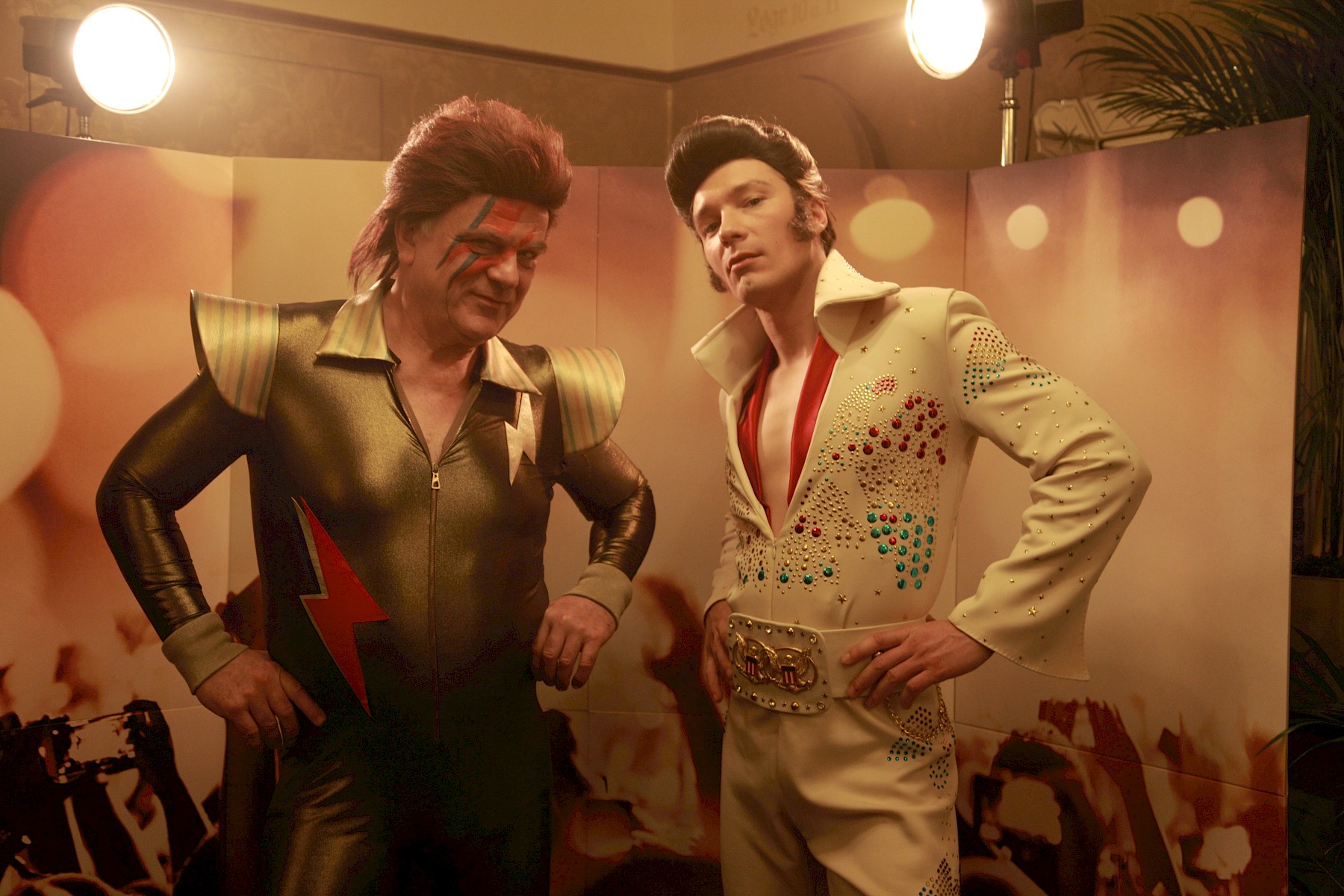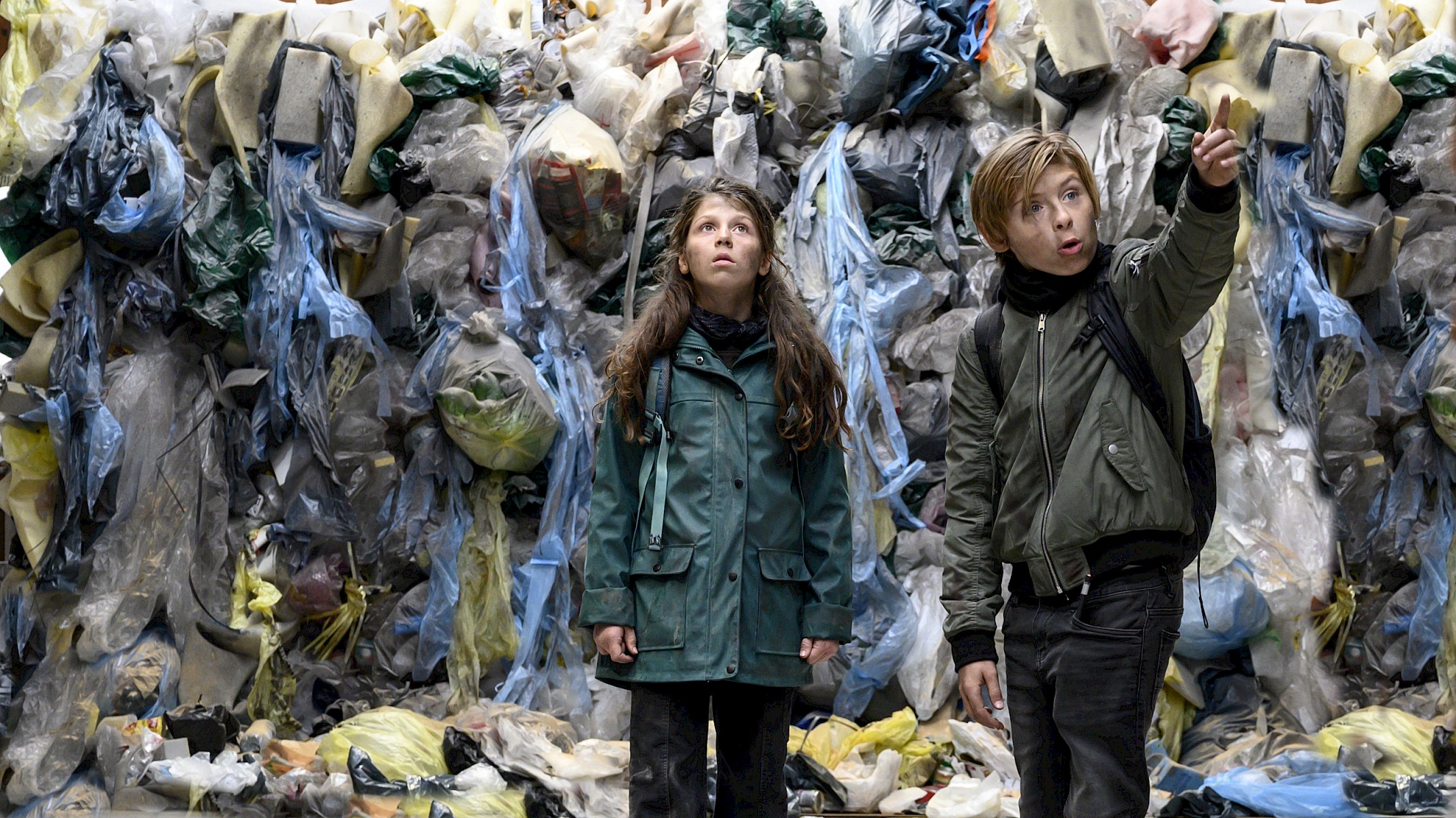Expedition throughthe film north
A lot can happen in just one year. And a lot more in two years. On the following pages, we’d like to show you what has happened in the past 24 months.
An Industry
under pressure
And all of a sudden everything was different. When Corona arrived, many film projects had to pause from one day of shooting to the next – with no idea what would happen next. Cinemas also had to close because of the risk of infection. So we came up with special funding tools to help the North German film industry get through the crisis safely. In the process, some 5,7 million euros in Corona aid was disbursed.
We paid out around 1 million euros in Corona emergency aid for 43 projects in 2020 and 2021. The comedy THE BLACK SQUARE alone had to make up seven days of shooting. In the film, two art thieves are on the run with a painting worth 60 million euros. The additional costs funding for the production was exactly 0.1 percent of the fictional painting's value: 60,000 euros.
Copyright Photo: Port au Prince Pictures
You need three things to make a good movie: a good screenplay, a good screenplay and a good screenplay. That's why we set up the 3x3 special program during the dry spell of the first lockdown. In uncertain times, this funding gave recipients the security of being able to realize three screenplays in three years. Thirteen production companies and authors from the North received funding of 150,000 euros each.
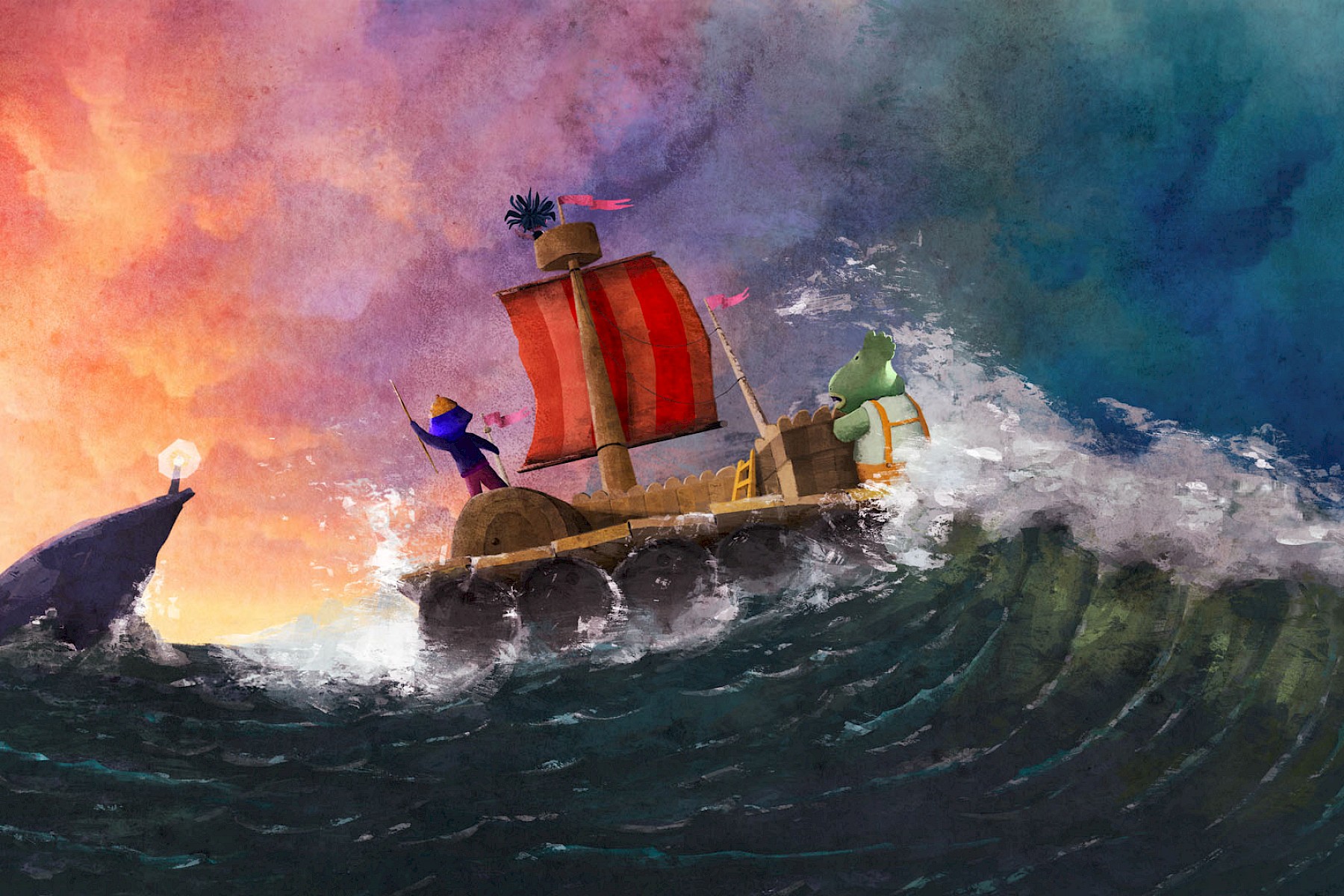
When no one could go to the movies during the lockdown, the states of Hamburg and Schleswig-Holstein wanted to cushion the impact for the cinema operators. Since March 2020, over 3 million euros have been paid out to 69 cinemas in Hamburg and Schleswig-Holstein.
After eight months of lockdown, after second and third waves, the cinemas were finally able to reopen in July 2021. And the first round was on us: All participating cinemas hosted a free screening on the opening weekend, for which the city of Hamburg and the state of Schleswig-Holstein donated free tickets. And they did it for those who were particularly affected by the lockdown: Families with children, but also, for example, educators, nurses and bus drivers.
Continue to next chapter: Funded projects
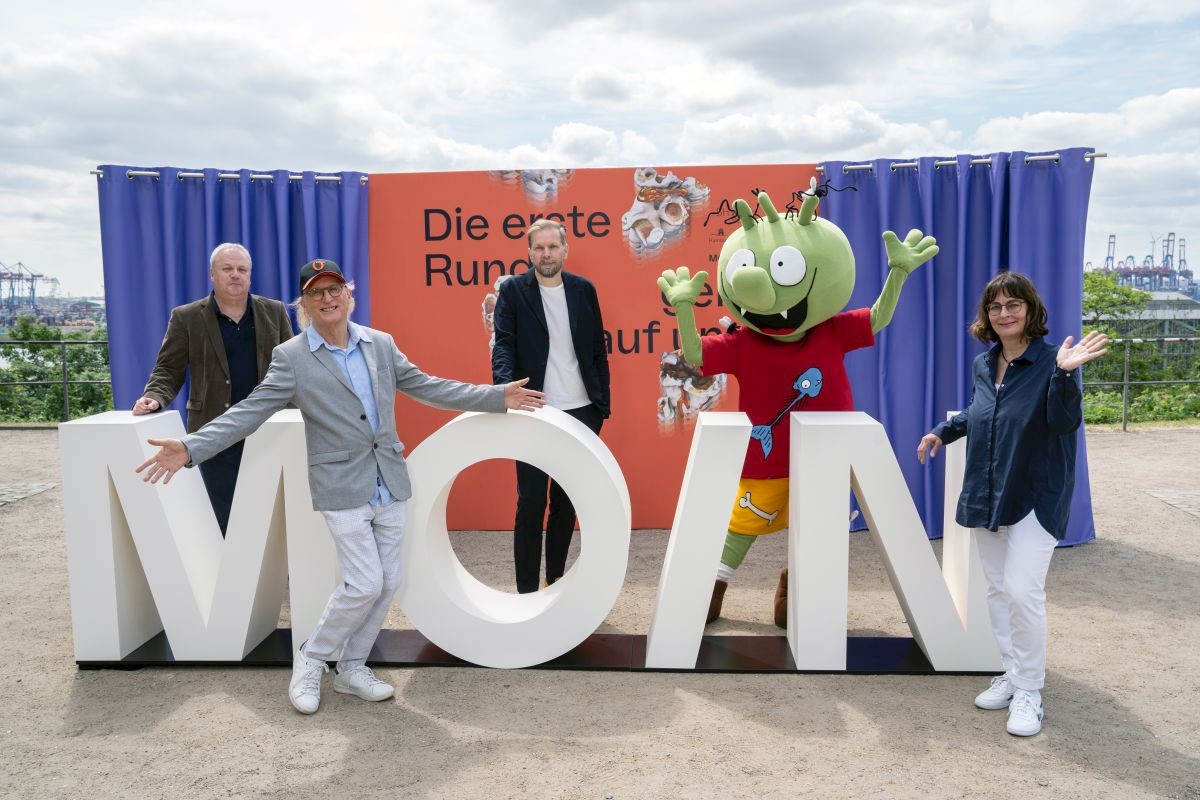

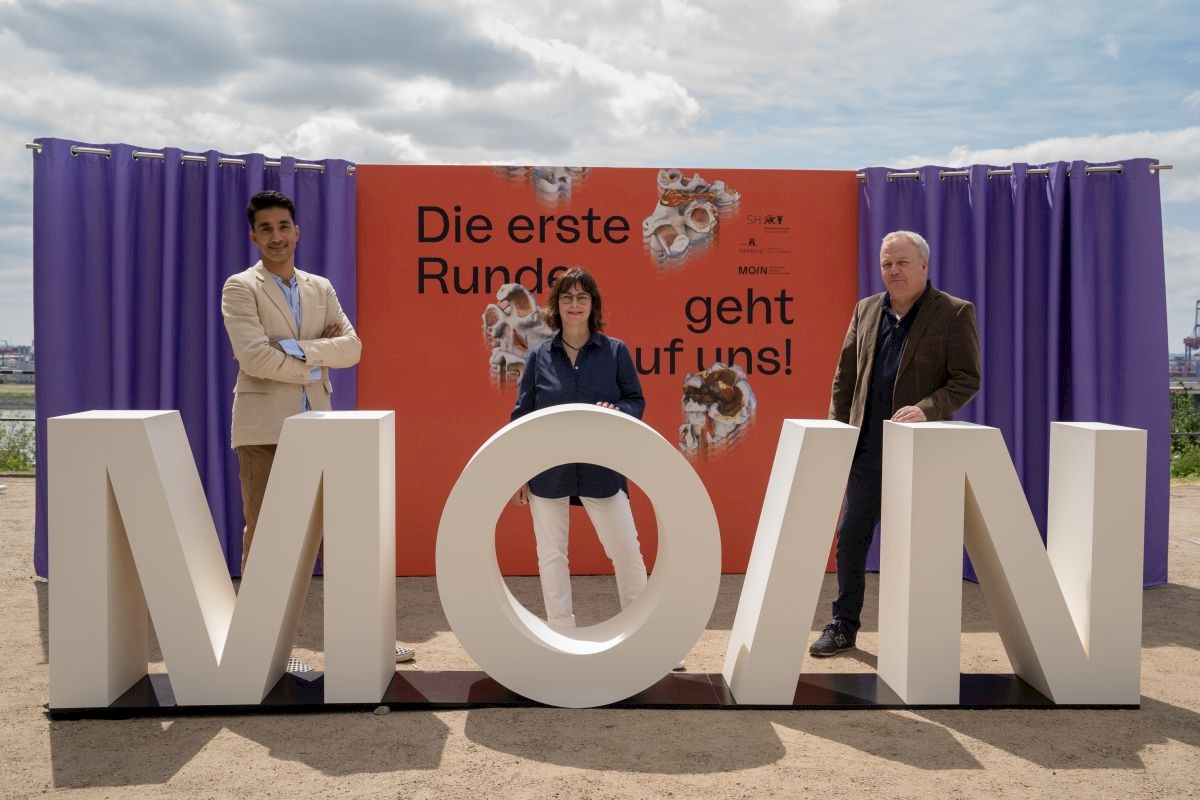
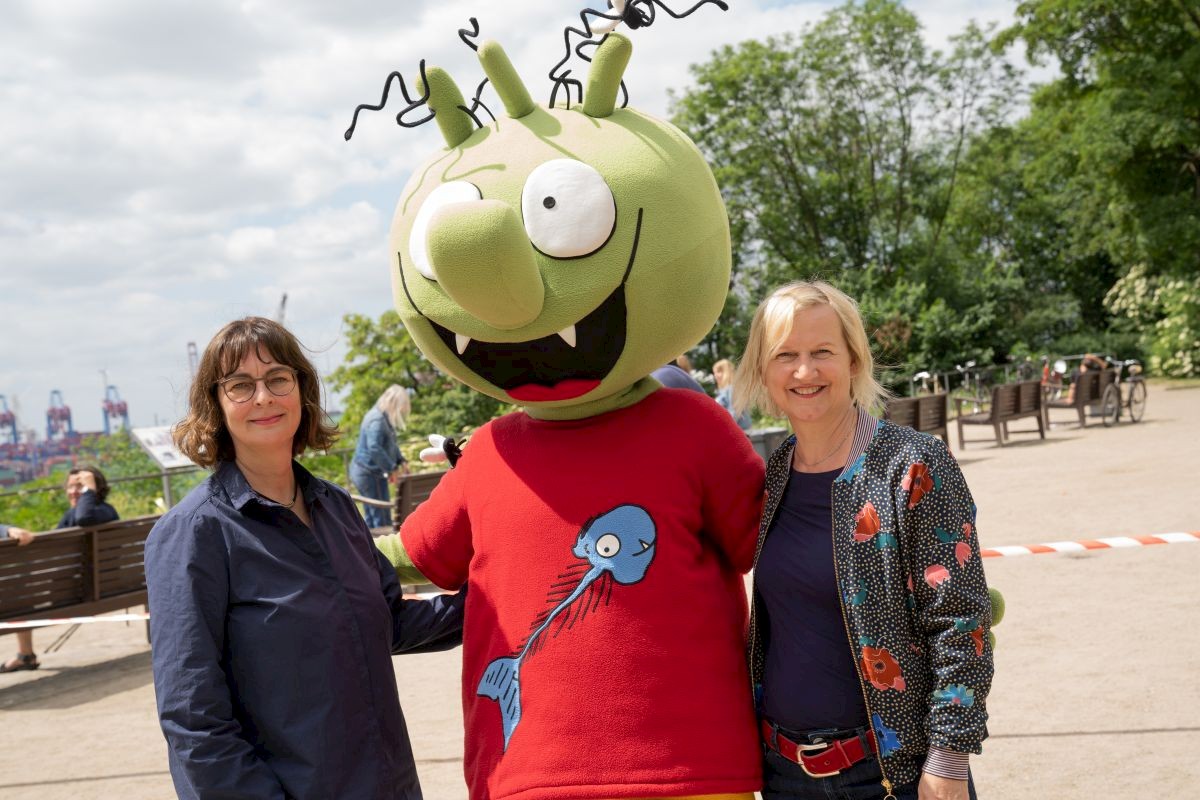
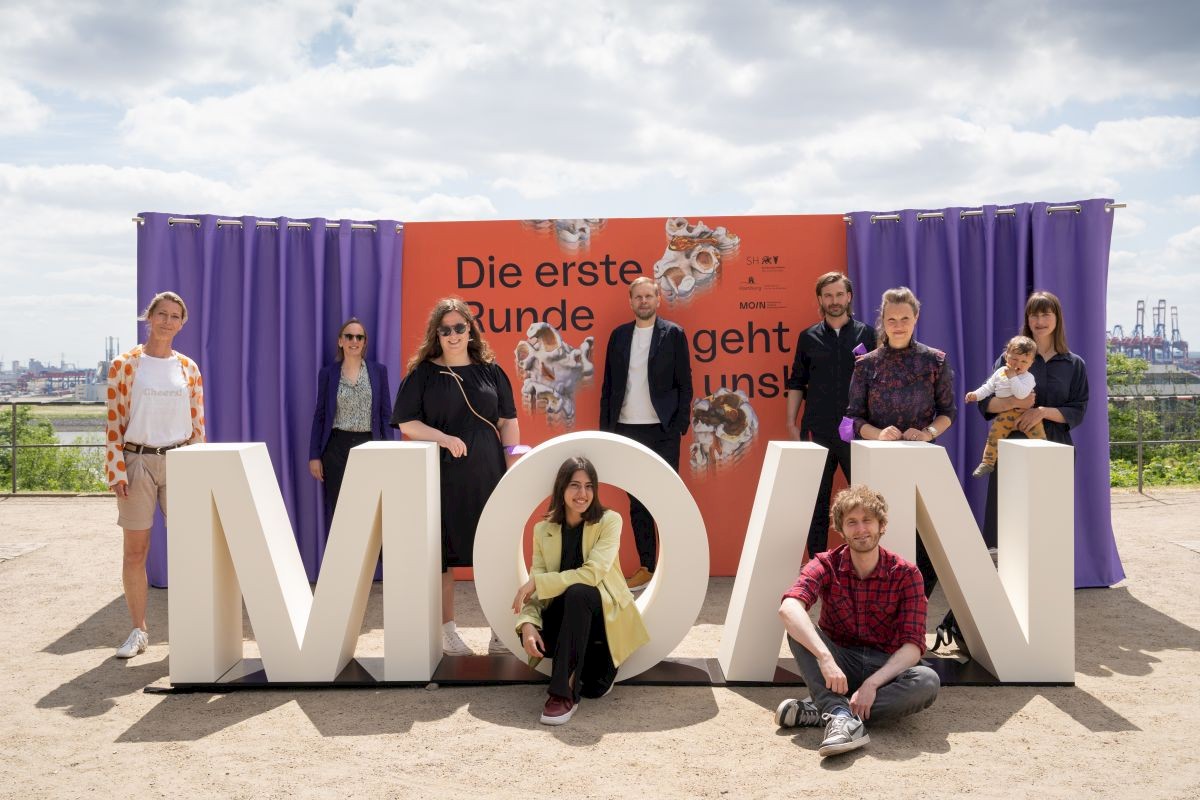
This is how
we provided support
Filmmaking is an expedition with many different stations: from the initial idea to the production of a film to its distribution. We support all of these stages. In the past two years, we have granted a total of 559 funding commitments with a total volume of 26.2 million euros.
Starting new projects in uncertain times – it’s a gamble. That’s why we have placed a funding focus on the development of new content. Around 15 percent of our funding, a total of 3.8 million euros, went to development. The developed material will one day be turned into feature films, streaming series and innovative moving-image content such as virtual reality installations.
But that’s not all, we are the first regional funder in Germany to also support treatments – in other words, the development of a film idea before it is turned into a screenplay. In 2020 and 2021, we supported 21 treatments and 5 innovative film ideas with 156,000 euros.
The most expensive part of making a film is the shooting. That's why we've dedicated three-quarters of our funding to it, a total of around 20 million euros. In the cinema segment alone, 60 feature films, 36 short films and 31 documentaries are being made.
The highest funding amount in 2021, 700,000 euros, went to Fatih Akin's gangster biopic RHEINGOLD, about the German rapper Xatar. In 2020, the most funding was given to Lars Jessen's novel adaptation "Mittagsstunde" and the animated film "The Last Whale Singer" by Hamburg-based Telescope Animation Studios.
At the beginning of the 20th century, cinema itself was still a new form of entertainment. Today, production companies in the north are experimenting with formats such as 360-degree films or immersive story worlds. For this, we have funded the development of innovative ideas at the Kiel location with 174,000 euros.
It's hard to imagine the current range of streamers and broadcasters without high-end series. We want to pave the way for great stories in the film north. Since the end of 2019, the city of Hamburg has been providing extra funding to the tune of one million euros per year for this purpose.
The pandemic years 2020 and 2021 were tough times for film distribution: cinemas remained closed for months and finished films piled up in the queue. In the first Corona year, we were still able to support 27 films with 848,000 euros for their theatrical releases. In 2021, this number dropped to 14 films in distribution with an amount of 607,000 euros. There was also a further 174,000 euros for 42 subtitles, basic equipment and special measures. Our glimmer of hope lies in 2022 – with a more relaxed Corona situation and new cinema releases such as Michael Bully Herbig's „Tausend Zeilen“ or the docu-fiction „Willi und die Wunderkröte“.
Continue to next chapter: Regional effect
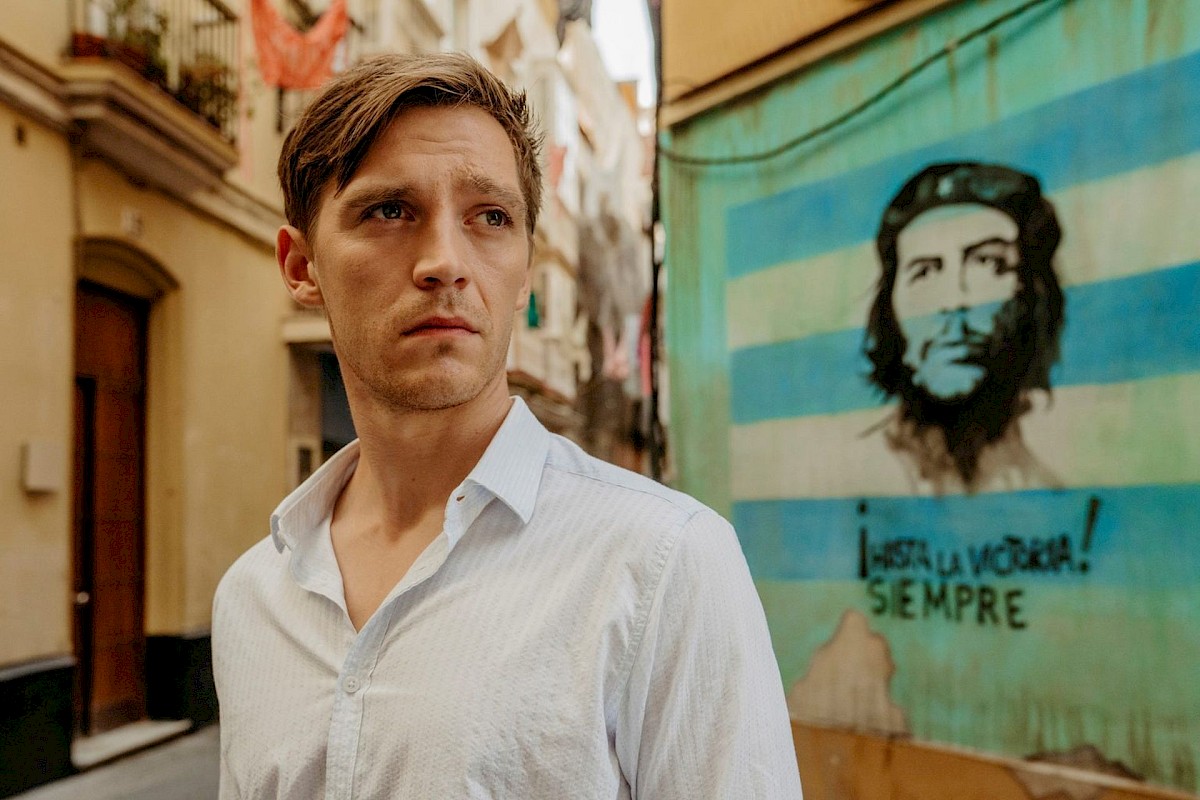
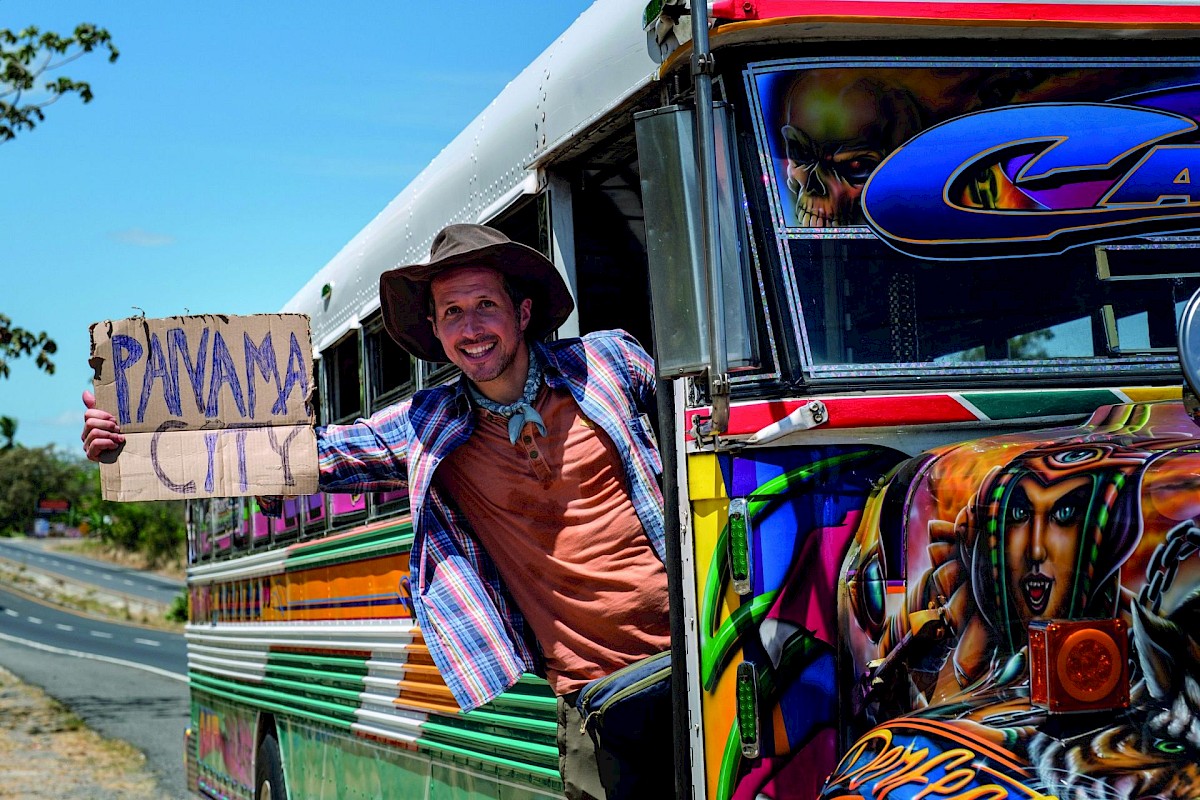
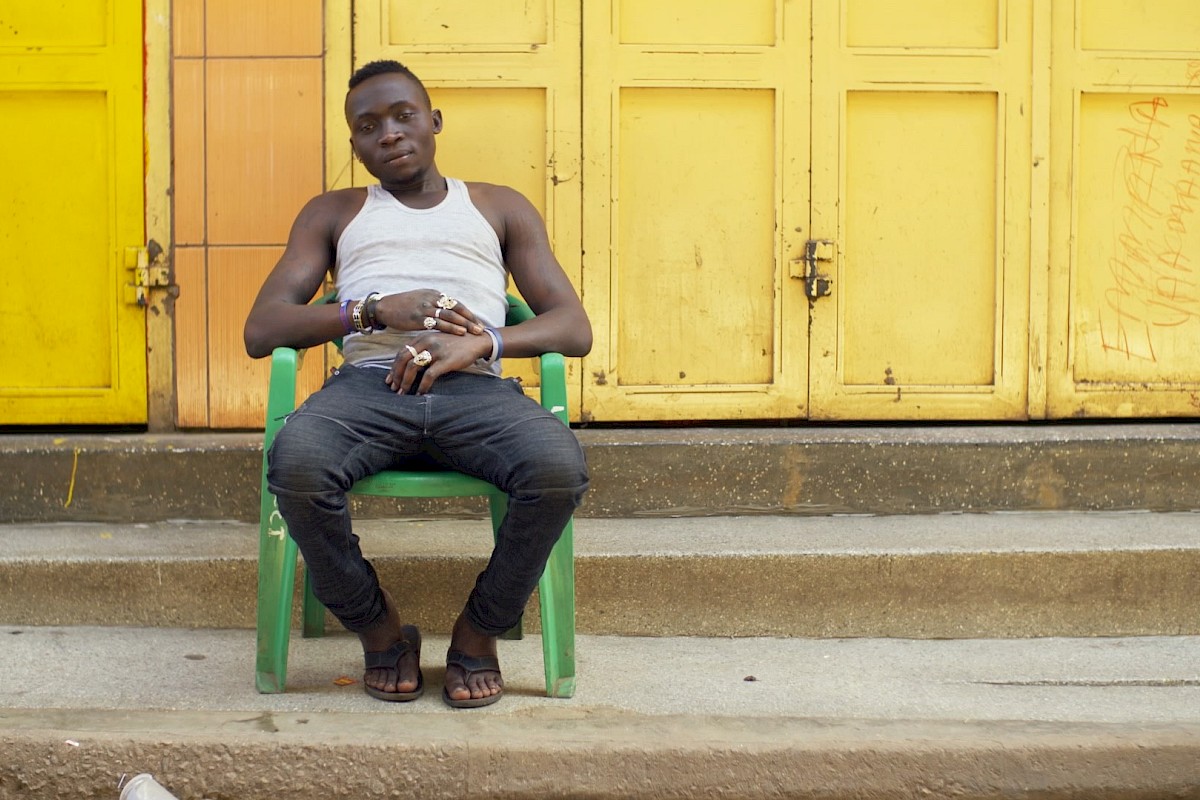
On the film set
at half past midnight
In 2020, the number of film shoots was cut in half due to Corona. But in 2021, the industry in the north regained its strength. One reason for this is that film crews can find locations here that are not available anywhere else.
The fact that fewer films were made during the pandemic is also reflected in the number of total shooting days. In 2020, it was significantly lower than in the previous year. In 2021, however, filming returned in full force – the crews had a lot of catching up to do and were now much more experienced in dealing with hygiene safety concepts, even if these measures still make filming more expensive and even more complex.
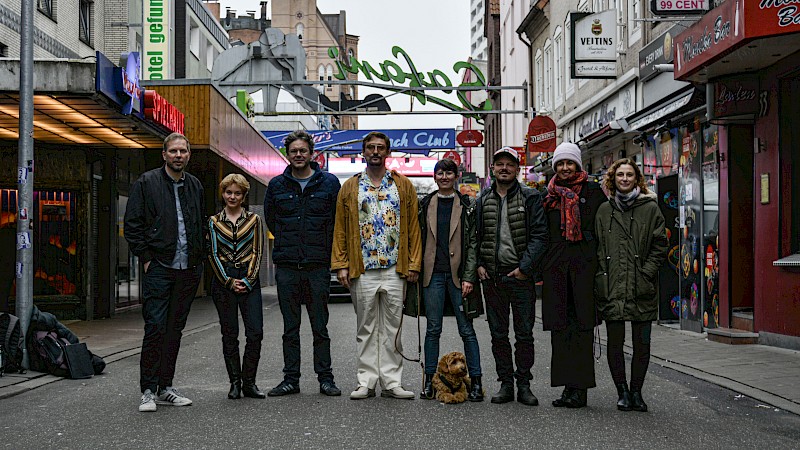
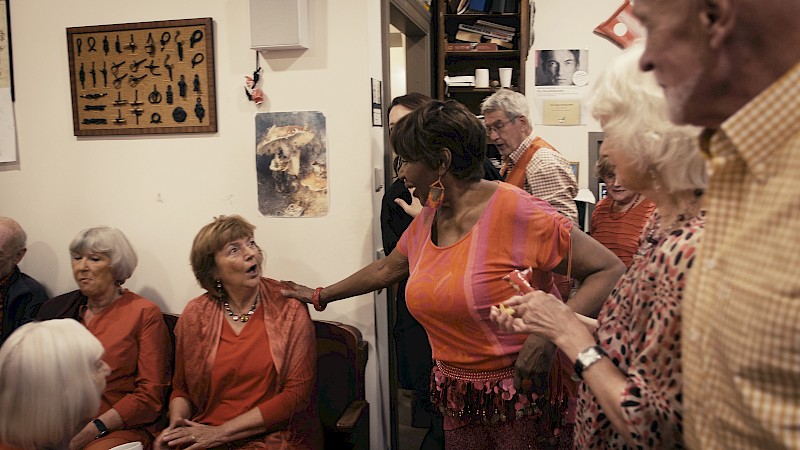
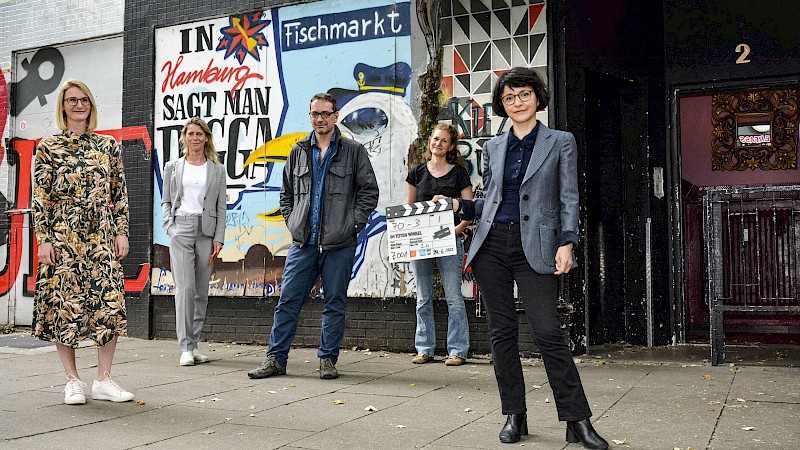
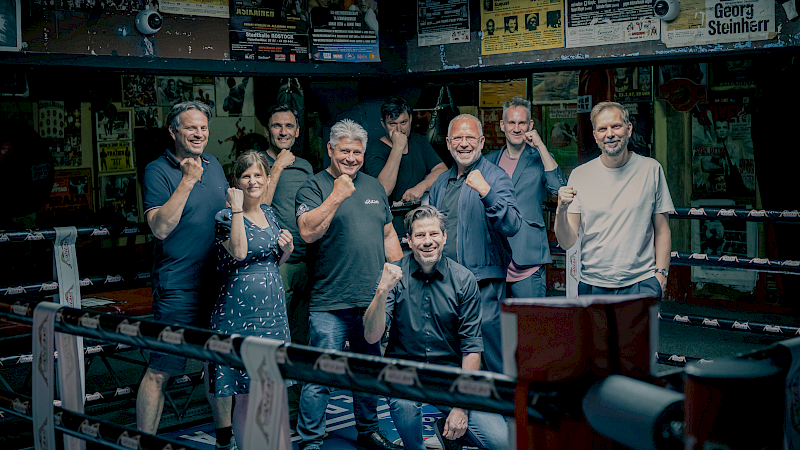
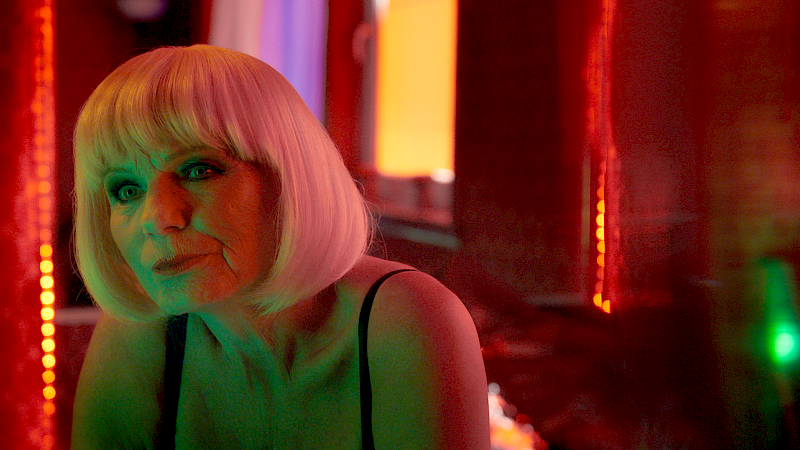
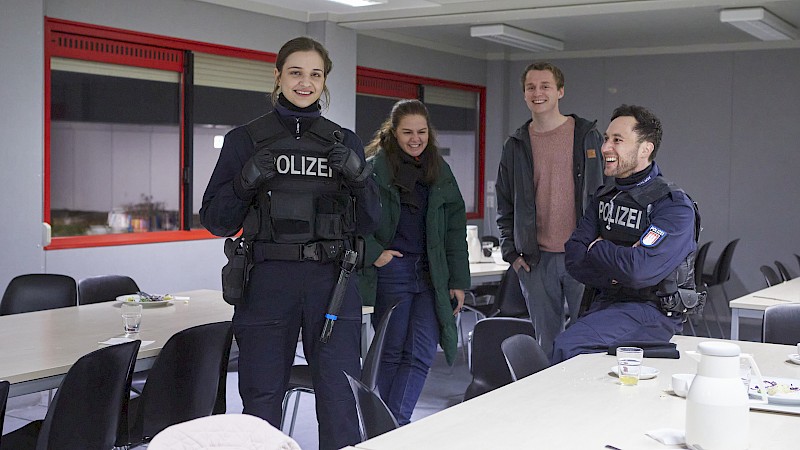

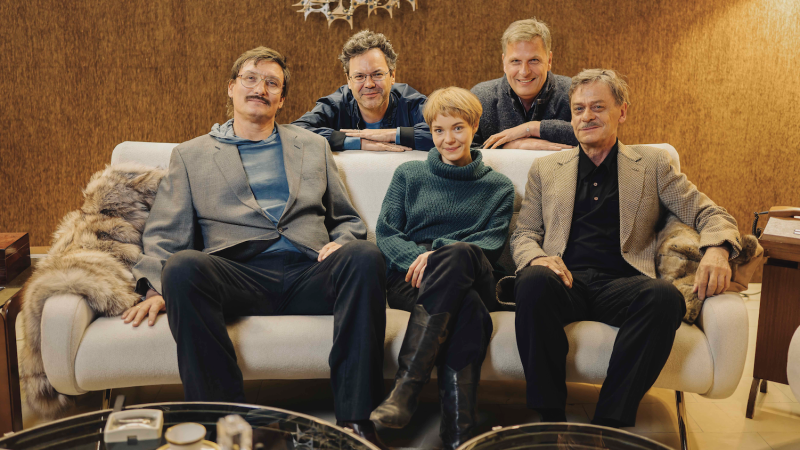
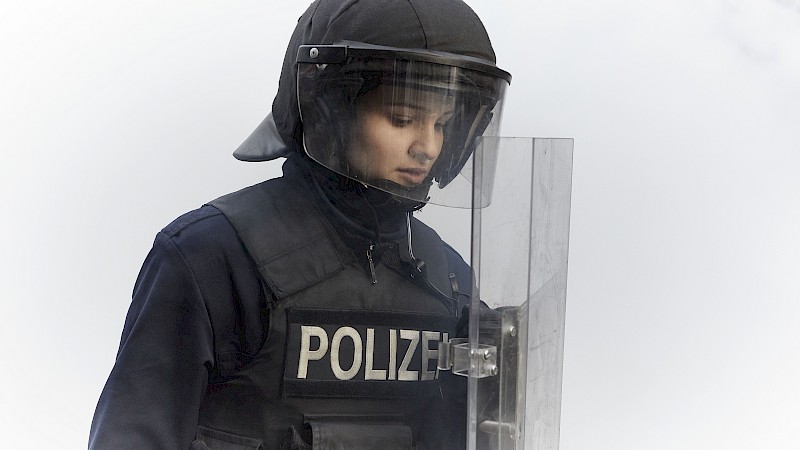

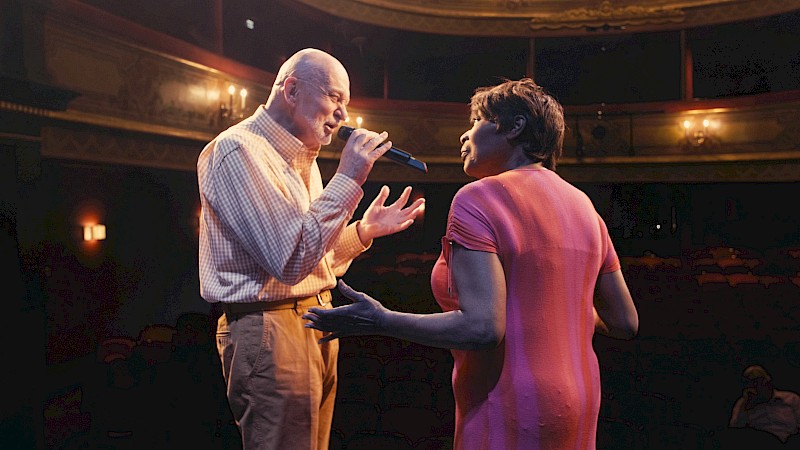
Captivating Shoots on the Reeperbahn: True crime needs real locations. The series REEPERBAHN SPECIAL UNIT 65 by the makers of the Netflix production ROHWEDDER revives the old St. Pauli. And the Amazon series GERMAN CRIME STORY: GEFESSELT with Oliver Masucci tells the story of a serial killer who tortures and kills women in his own nuclear bunker in Hamburg. Until a young female detective gets on his trail and solves the case against all odds.
Above and Under Water: Just above water, the team around sisters Martina and Monika Plura filmed MEIN LOTTA-LEBEN 2 - ALLES TSCHAKA MIT ALPAKA over the course of 16 days in Schleswig-Holstein, including a mud fight in the shallows of the Wattenmeer.
The team for director Maximilian Erlenwein's thriller THE DIVE went deep underwater. They spent eight days filming at the OffTEC offshore training center in North Frisia – where U.S. superstar Michael B. Jordan dived into the water tank in 2019 for his action film WITHOUT REMORSE.

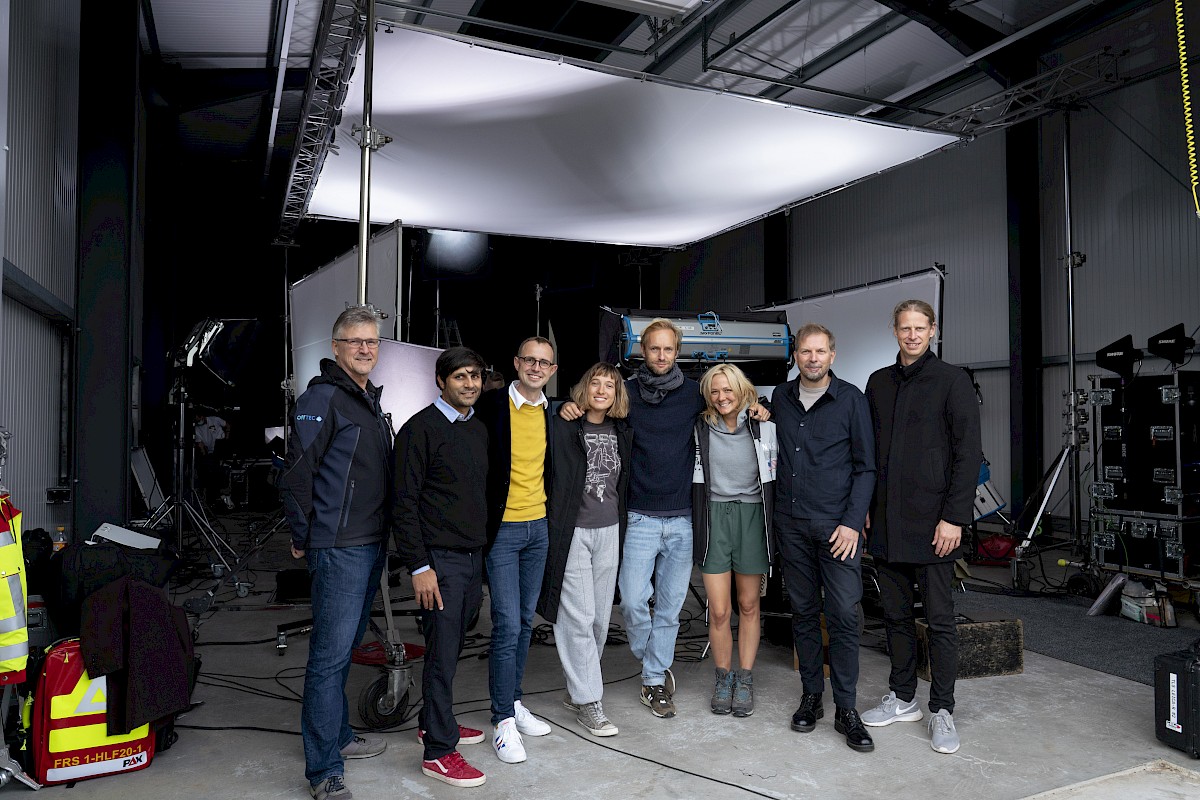
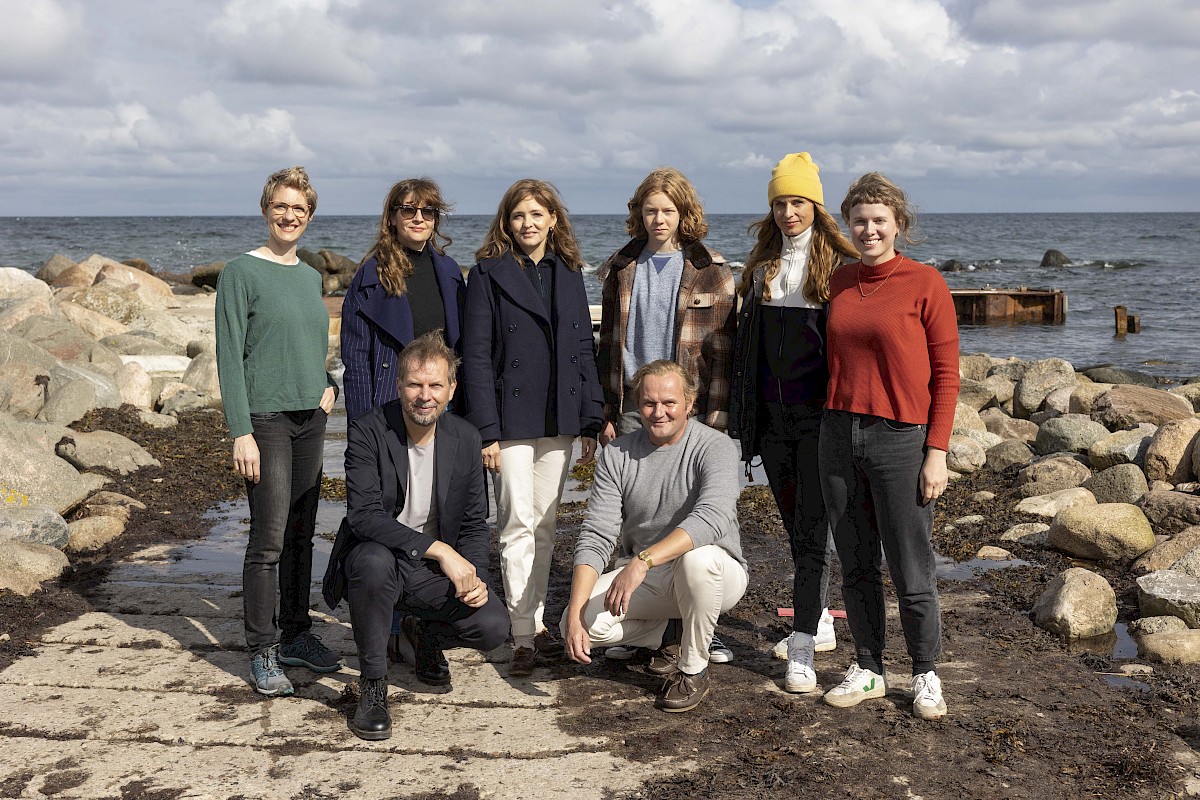
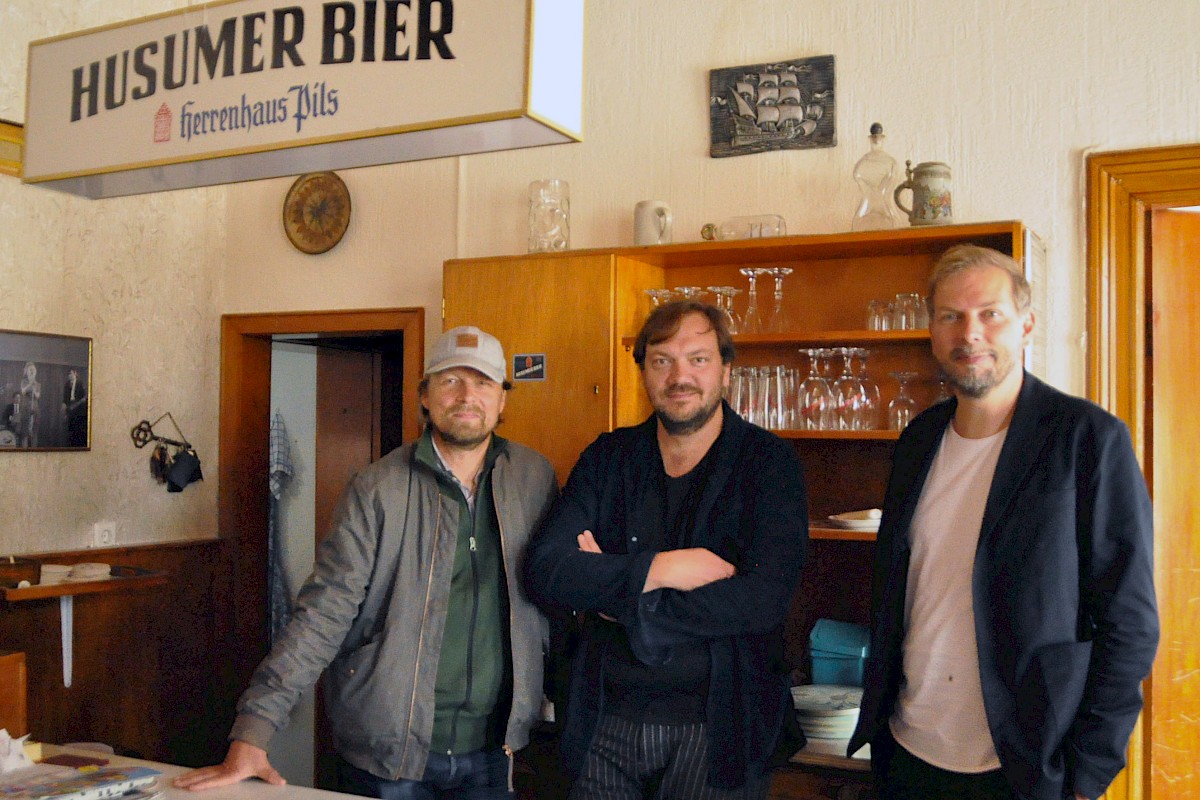
Dörte Hansen’s novel MITTAGSSTUNDE tells the story of the fictional village of Brinkebüll in North Frisia. Director and producer Lars Jessen shot the film adaptation of the bestseller, starring Charly Hübner as Ingwer Petersen, at nine different locations in Schleswig-Holstein: From the country inn in Sollerup, the film team traveled to Husum, Wöhrden, Owschlag, Hollingstedt, Wesselburenerkoog, Viöl, Luhnstedt and Langstedt. Filming began in 2021 and will continue in 2022.
Continue to next chapter: Regional effect
Triple
holds better
All funded productions must spend at least 150 percent of their funding amount in Hamburg and Schleswig-Holstein. But in most cases they invest even more: In total, about three times the funded amount is spent in the funding region.
A total of 88 funded projects were completed and settled in the past two years. All of them were required to spend 150 percent of the funding in the region. This was spent for employees such as the director, cast or make-up, but also for service companies or the rental of equipment and filming locations.
The 13.5 million euros we granted in funding for these projects thus became 42.36 million euros that flowed back into the region. Every euro we invested thus generated 3.12 euros for the economy in Hamburg and Schleswig-Holstein.
Continue to next chapter: Budgets
Who's
on board?
MOIN Filmförderung's shareholders are the Free and Hanseatic City of Hamburg and the state of Schleswig-Holstein. Additional funding comes from NDR, ZDF, Warner Bros. and from a fixed portion of broadcasting fees.
To strengthen the support of high-end series in the region, Hamburg increased its annual contribution to over 9 million euros. And there was another addition in 2020: For more blockbusters from the north, the Hamburg-based Warner Bros. Entertainment GmbH provides 1 million euros annually to be administered in trust.
The MOIN film funding budget amounts to around 16.5 million euros annually. Schleswig-Holstein rounded up in 2021 and has, since then, been contributing one million euros per year.
Continue to next chapter: Diversity
Different
but together
An expedition lives from the different perspectives of its participants. But social diversity is often not visible enough in films. We want to change that together with the industry.
We want more diversity in film. But just wanting it alone is not enough. That's why we're working to make our structures more diverse. In April 2020, we reorganized our committees. Currently, 49 per cent of our surveyed committee members identify as female and almost a quarter as people of colour and/or with a migration background. They all decide which projects receive our funding.
A change in thinking is also taking place in our MOIN team – with measures such as sensitive language use, in-house training and an increasingly diverse make-up of our team (although there is still room for improvement there).
We have set ourselves the goal of ensuring that female filmmakers can receive just as much support from us as male filmmakers. In our Director's Cut committee – responsible for arthouse films – this is already working very well. But we still have some work to do in our higher-budgeted high-end segment, where male directors are clearly in the majority.
More figures on the structure of our committees, our team and our funding decisions are available in our Diversity Overview (from p. 11 in PDF).
Since June 2020, film productions that apply for funding are required to fill out a Diversity Checklist. The aim of the questionnaire is to give the film teams the opportunity to put their planned project through its paces and check its diversity. The checklists are a great help for the committees –the topic of diversity has been firmly anchored in the discussions and decisions since their new appointments.
Continue to next chapter: Sustainability
Keeping the sea
intact
The climate crisis and the resulting rising sea levels are the greatest threats of our time. Ecologically sustainable film production is a must for us. That's why we introduced the Green Filming Badge in 2020 and the nationwide Green Motion label in 2021.
A film production consumes the most resources during filming. In 2021, we joined forces with other film funding institutions, broadcasters like ZDF, platforms like Netflix and production houses like Studio Hamburg to introduce a catalog of criteria with 21 minimum ecological standards.
Part of the green conditions are, for example, a green consultant on set, more rail travel instead of air travel, and balancing one's own ecological footprint. And Green Motion also has the right seal of approval to go with it.
More about the Green Motion label
Photo: Die Pfefferkörner und der Schatz der Tiefsee (Copyright: Wild Bunch Germany 2020)
A film production consumes the most resources during filming. In 2021, we joined forces with other film funding institutions, broadcasters like ZDF, platforms like Netflix and production houses like Studio Hamburg to introduce a catalog of criteria with 21 minimum ecological standards.
Part of the green conditions are, for example, a green consultant on set, more rail travel instead of air travel, and balancing one's own ecological footprint. And Green Motion also has the right seal of approval to go with it.
More about the Green Motion label
Photo: Die Pfefferkörner und der Schatz der Tiefsee (Copyright: Wild Bunch Germany 2020)
With our Green Filming Badge, we've been taking care of the ecological footprint outside of filming since 2020 – whether it's while writing a screenplay, distributing a film or premiering it in theaters. In addition to the mandatory criteria catalogs, we also advise filmmakers in the North on how they can work greener.
How film shoots can become more sustainable is the subject of the German Film Commissions' online workshop series Keen to be green. Over 1,200 filmmakers from all trades have taken part so far. The response was so overwhelming that the series continues to run.
Continue to next chapter: New brand identity
With our Green Filming Badge, we've been taking care of the ecological footprint outside of filming since 2020 – whether it's while writing a screenplay, distributing a film or premiering it in theaters. In addition to the mandatory criteria catalogs, we also advise filmmakers in the North on how they can work greener.
How film shoots can become more sustainable is the subject of the German Film Commissions' online workshop series Keen to be green. Over 1,200 filmmakers from all trades have taken part so far. The response was so overwhelming that the series continues to run.
Continue to next chapter: New brand identity
Something new,
please!
Films have been promoted in the Hamburg region since 1980. Back then, we were the first to do so. On the occasion of our 40th anniversary, we fundamentally reorganized our film promotion activities and also changed our image.
Since we have changed many things in our structures, we also wanted to show this. Among other things, we have summarized our mission in the favorite word of the North Germans.
MOIN! “We are Moving Images North”. As MOIN Filmförderung Hamburg Schleswig-Holstein we make moving images in the north.
Praise, bears
and laurels
From a North German film gem to an internationally success film: the productions we supported won awards at numerous film festivals in 2020 and 2021.
Continue to next chapter: Credits
Successful theatrical release: Despite the Corona pandemic, more than 600,000 people saw Sven Unterwaldt's film "Catweazle".
The little green Olchis had a great run in theaters with around 500,000 moviegoers.
"There is no evil" by Mohammad Rasoulof won the Golden Bear at the Berlinale 2020.
"Futur Drei" by up-and-coming talent Faraz Shariat won the Teddy Award Best Feature and Teddy Reader's Award at the Berlinale 2020. Co-producer is Dirk Manthey from Hamburg.
The Berlinale 2021 Audience Award Panorama went to Monika Treut's "Genderation".
Two German Film Awards and almost 700,000 moviegoers: Hermine Huntgeburth's biopic was a success in Germany.
"The Gravedigger's Wife" by Khadar Ahmed had its world premiere at the "Festival de Cannes 2021" and received two awards at the Nordic Film Days Lübeck 2021.
Bavarian Film Award 2021, four German Film Awards 2021 - Tim Fehlbaum's end-time epic "Tides" was the talk of the town in 2021.
An exceptional film with an exceptional title: "Vengeance is mine, all others pay cash" by EDWIN won the Golden Leopard at Locarno Film Festival and is co-produced by Fatih Akin's company bombero international.
With "Curveball - Wir machen die Wahrheit" the Hamburg company Bon Voyage Films won the German Film Award 2021 in bronze, Thorsten Merten was awarded best supporting actor.
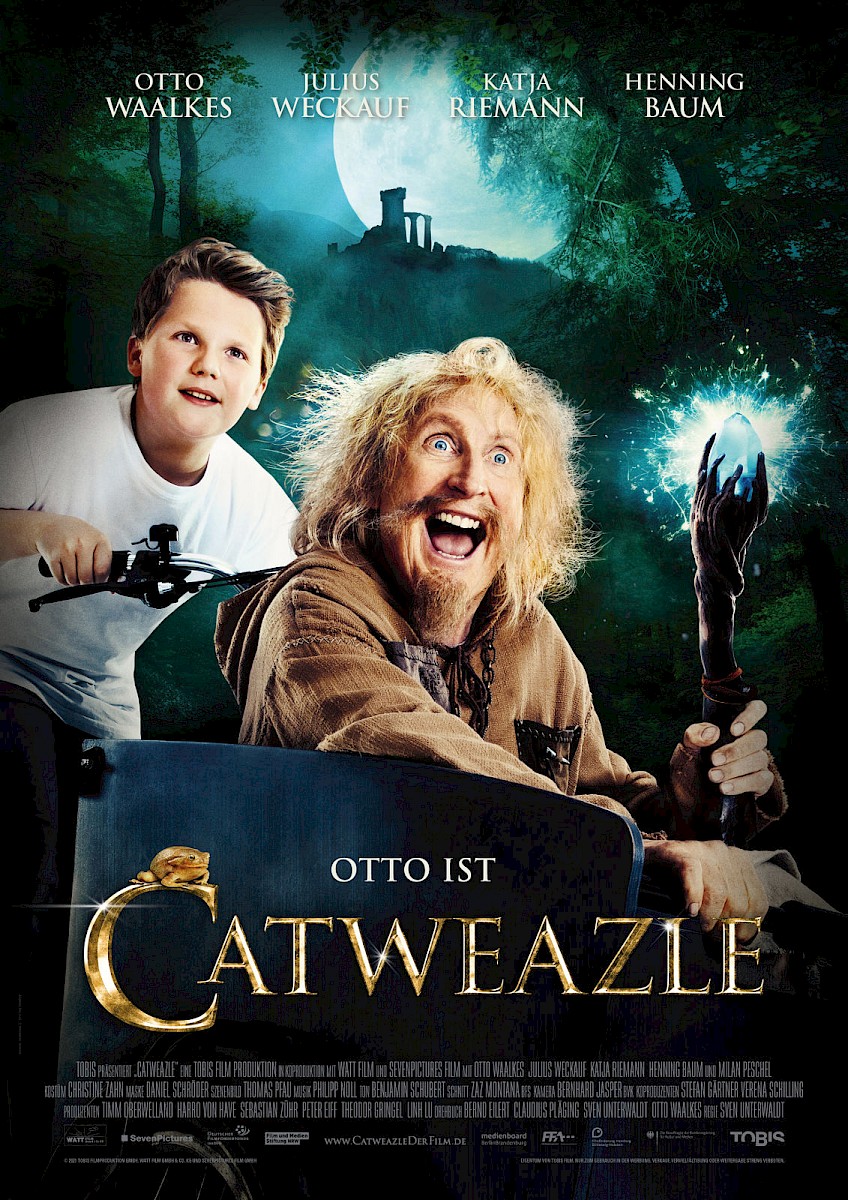
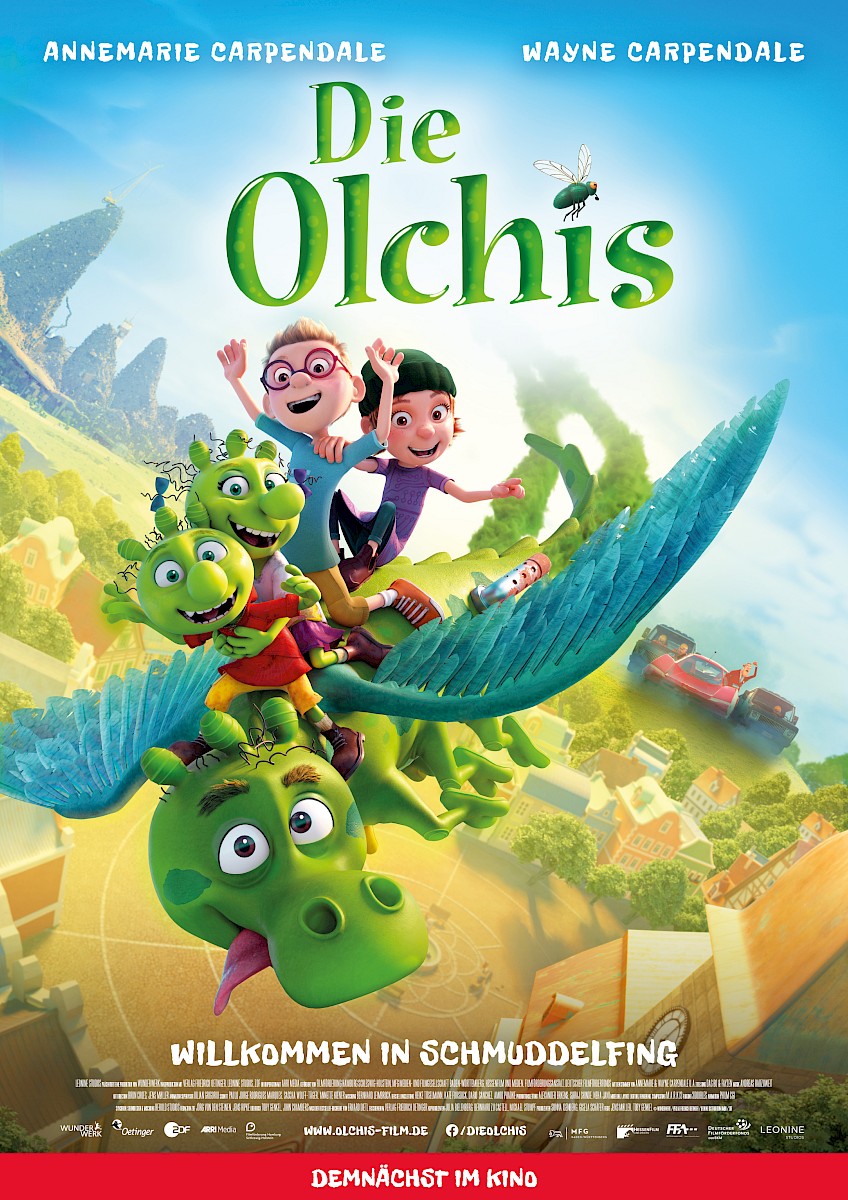
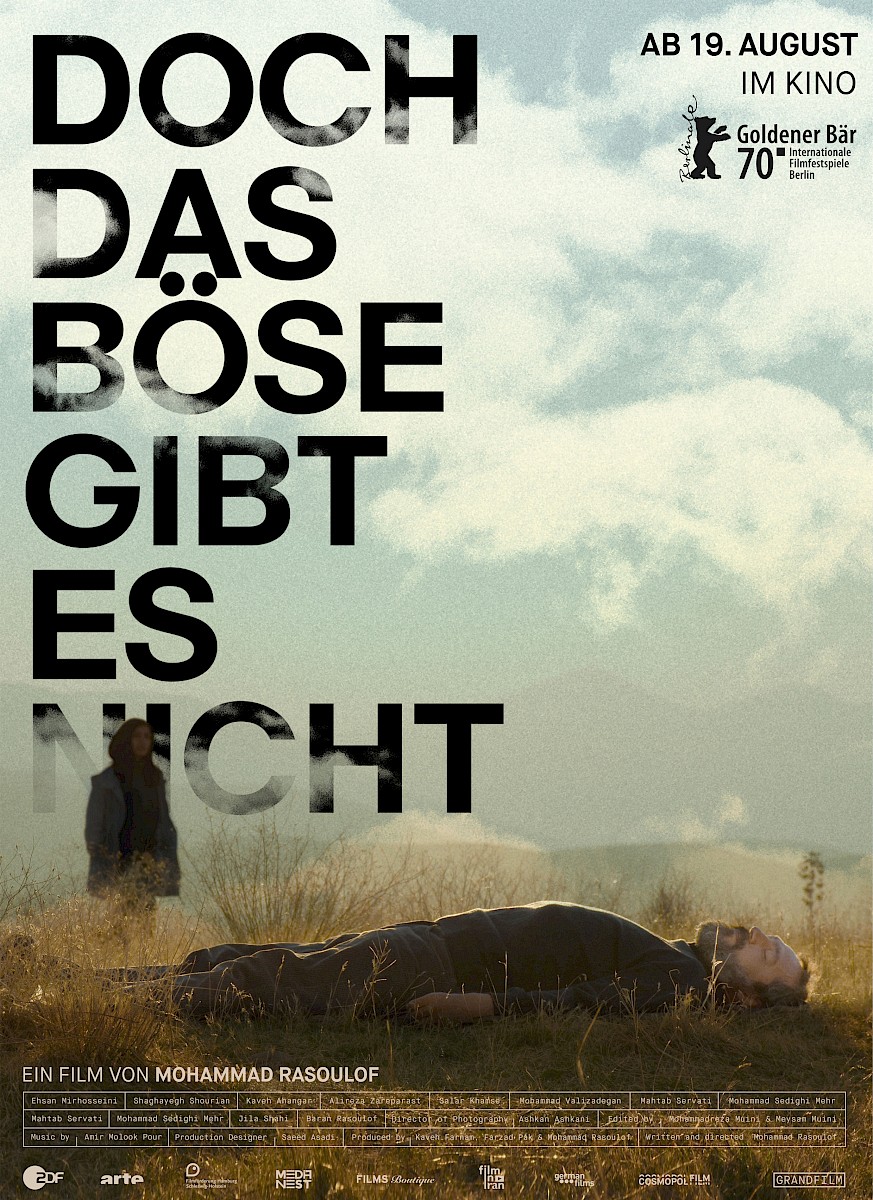
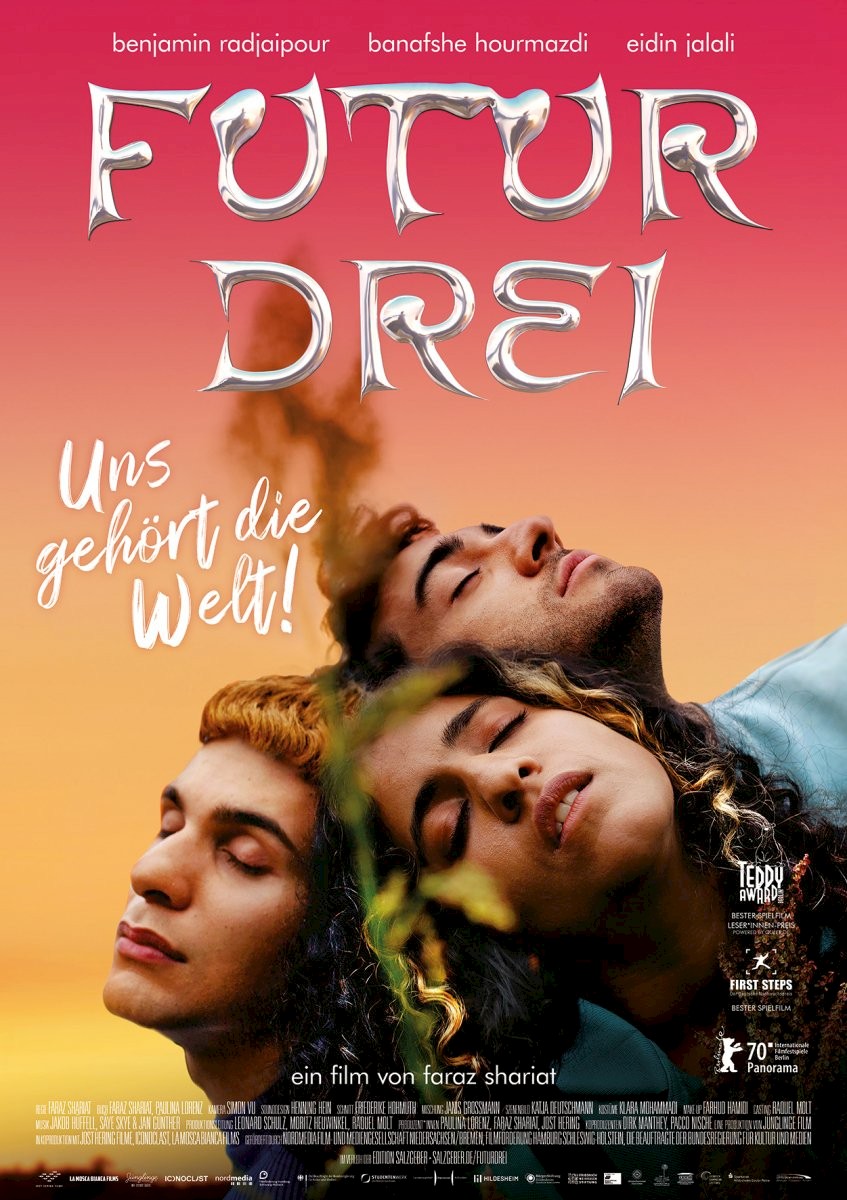
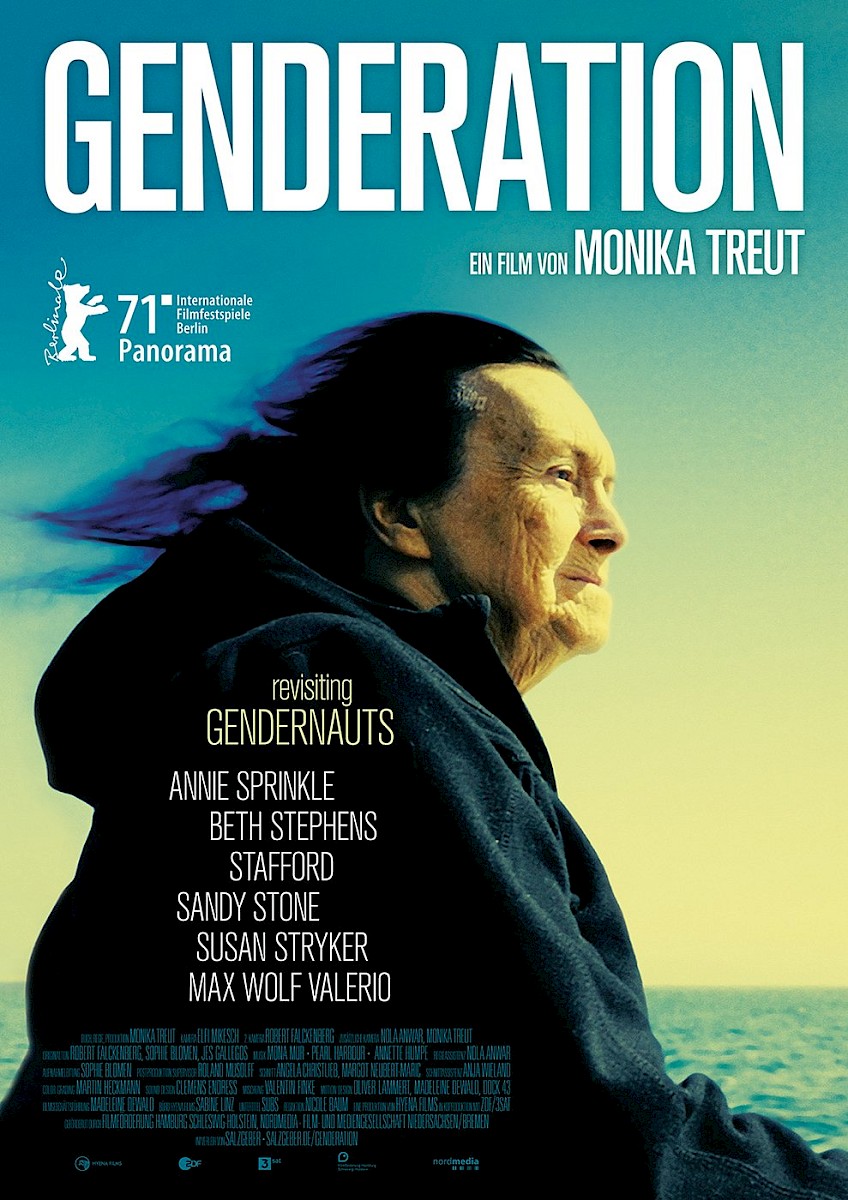
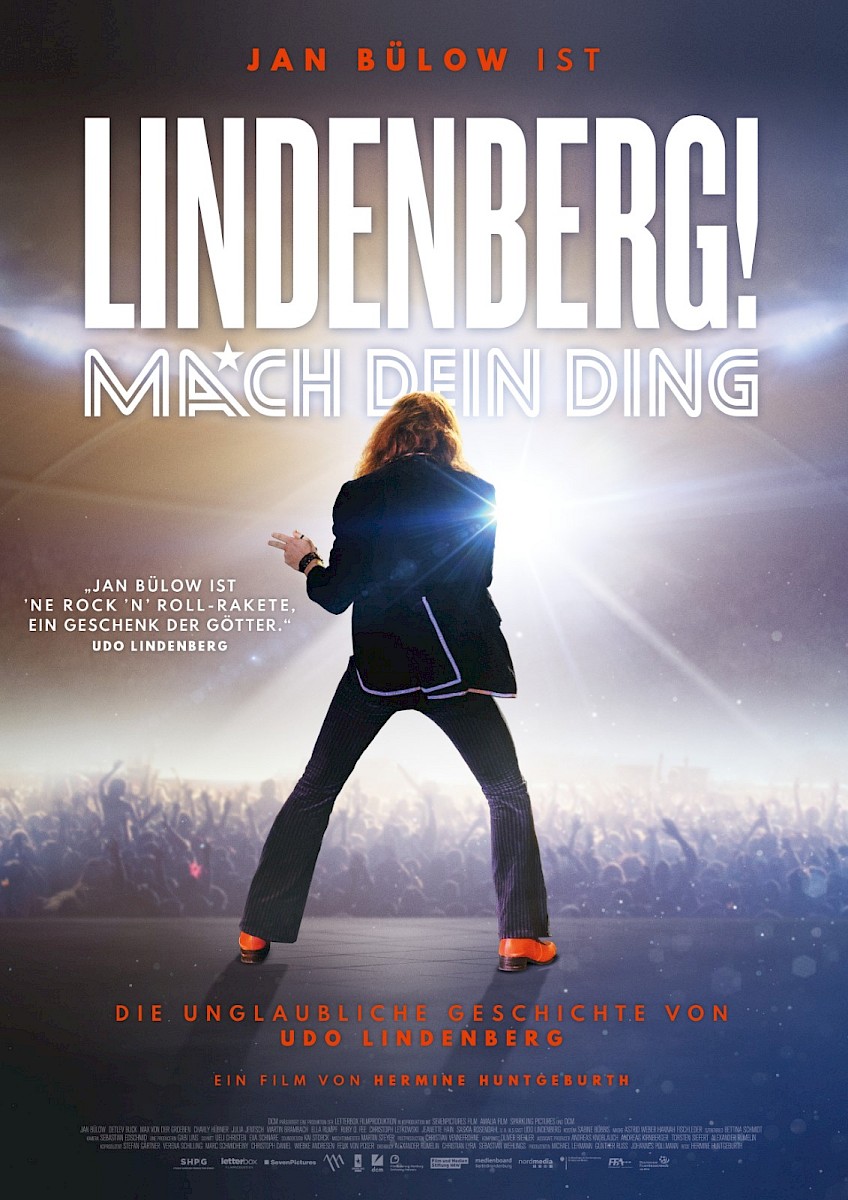
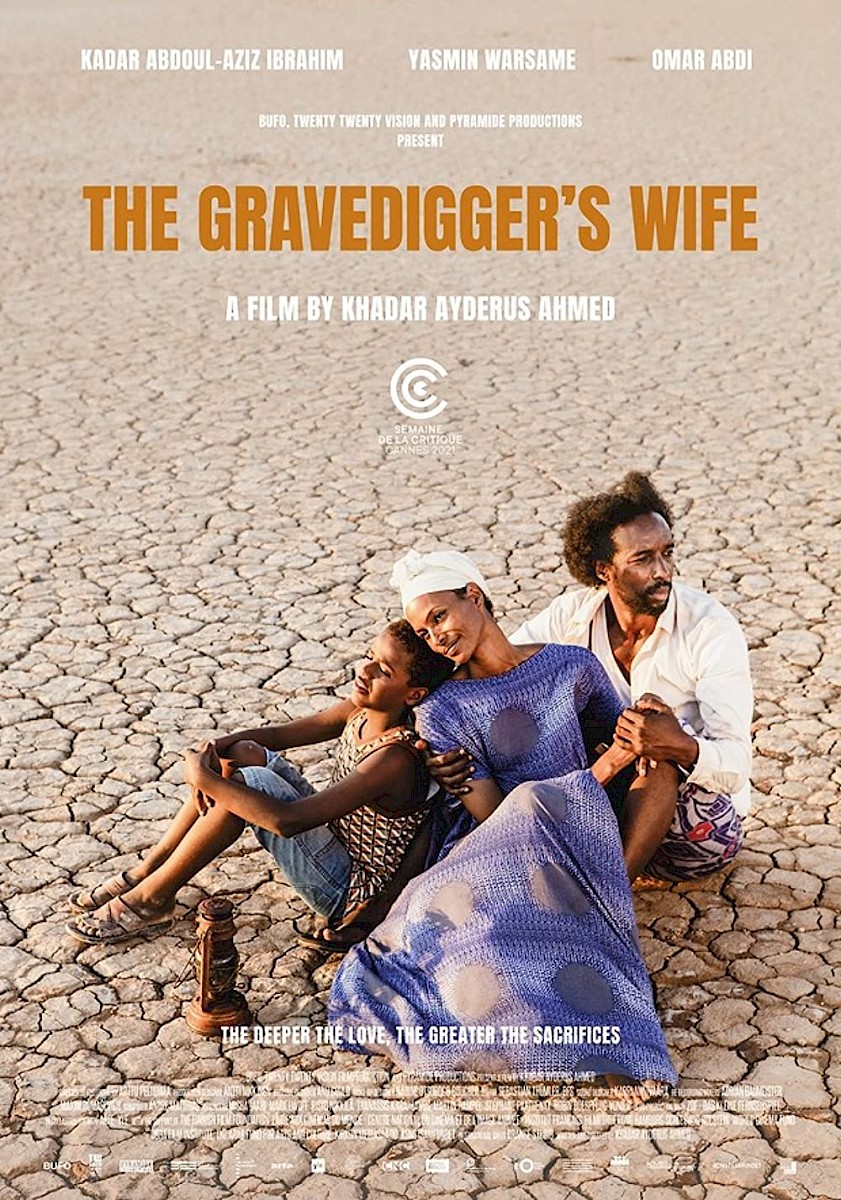
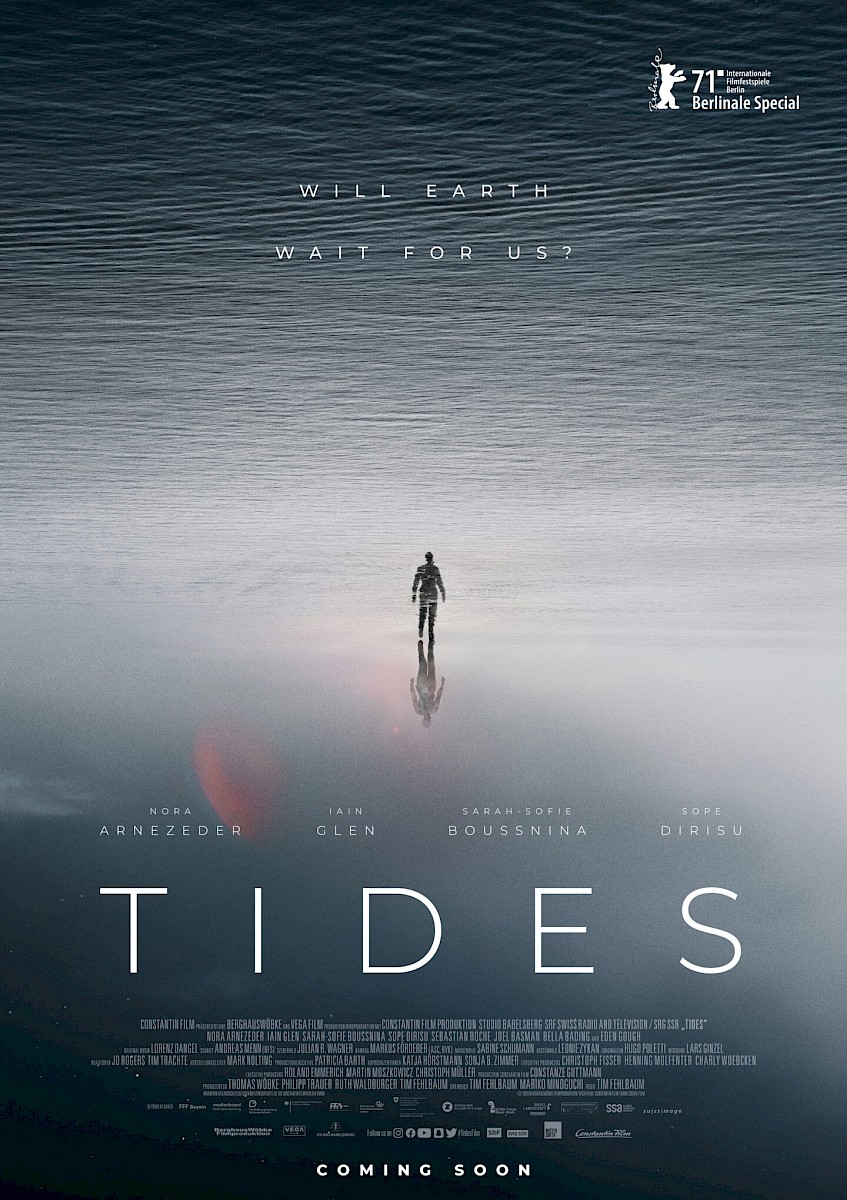
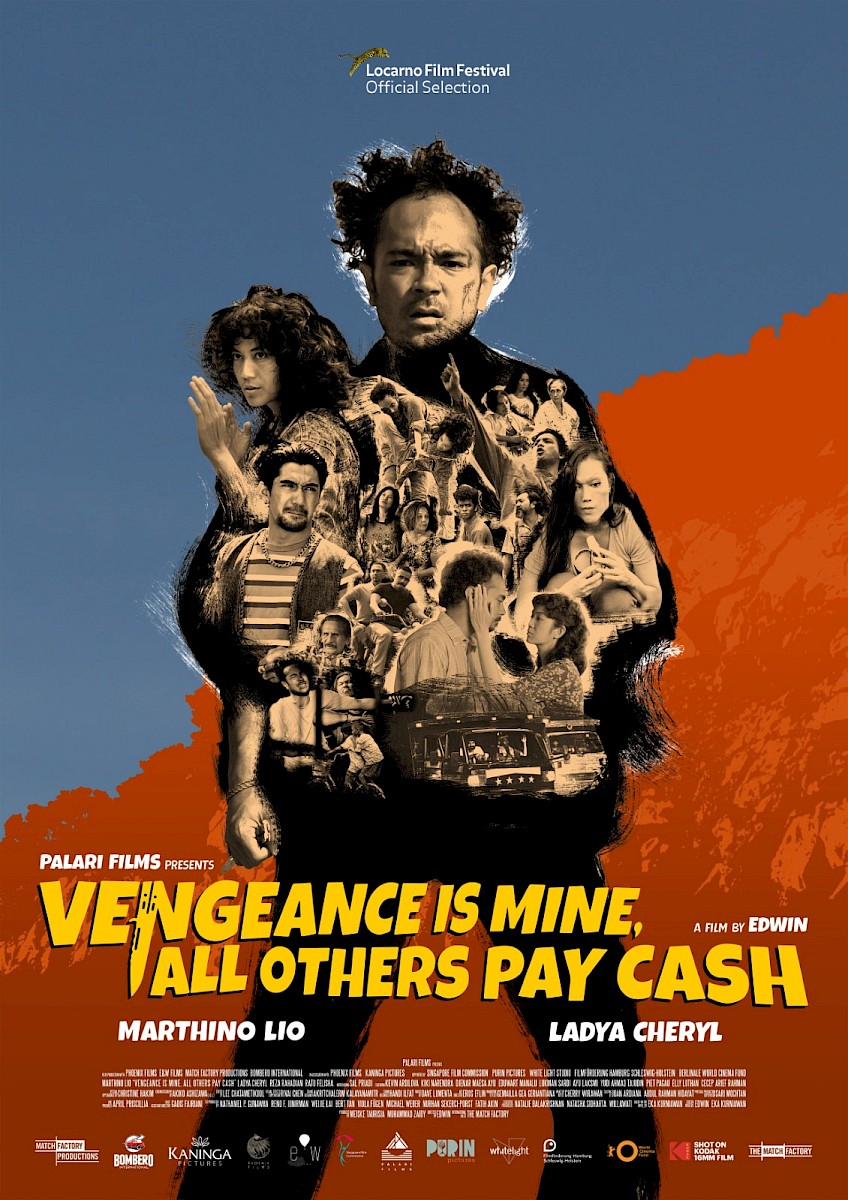
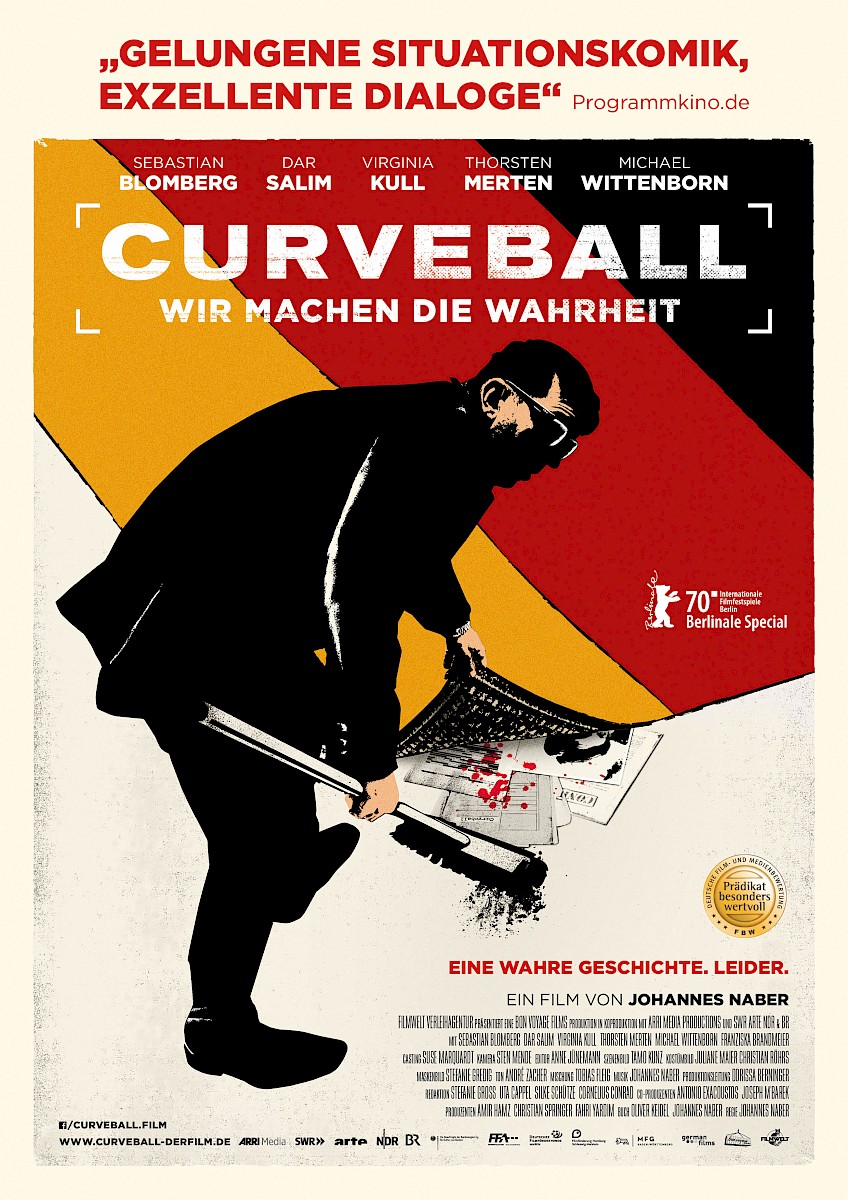
Thanks to all of the
members of the expedition!
COMMITTEE HIGH END
Christian Granderath
NDR, Head of Drama, Hamburg
Murat Isgüder
Movie Consult, Owner, Hamburg
Wenka von Mikulicz
DCM Pictures, Head of Development, Berlin
Caroline von Senden
ZDF, Chief Editor Fernsehfilm I, Mainz
Ipek Zübert
Screenwriter, Berlin
Helge Albers
MOIN Filmförderung, CEO, Hamburg
SUBSTITUTES
Nataly Kudiabor
Ufa Fiction, Producer, Berlin
Stefanie Ren
Scriptwriter, Berlin
Philipp Steffens
Glisk, Producer, Köln
Soleen Yusef
Writer/Director, Berlin
COMMITTEE DIRECTOR'S CUT
Bettina Brokemper
Heimatfilm, Producer, Köln
Gabor Greiner
Films Boutique, COO, Berlin
Timo Großpietsch
NDR, Editor for Documentaries & Reportages, Hamburg
Manja Malz
Metropolis Kino, Film Programmer, Hamburg
Maryam Zaree
Actress/Director, Berlin
Helge Albers
MOIN Filmförderung, CEO, Hamburg
SUBSTITUTES
Ali Samadi Ahadi
Little Dream Entertainment, Director/Producer, Hamburg
Sarah Blaßkiewitz
Director, Berlin
Annekatrin Hendel
Documentary Director, Producer it works! Medien, Berlin
Mia Spengler
Writer/Director, Hamburg
Sabine Steyer-Violet
Writer/Producer/Music Advisor, Berlin
Andres Veiel
Writer/Director, Berlin
COMMITTEE SHORT + INNOVATIVE
Birgit Glombitza
Freelance Writer, Coach and Curator, Hamburg
Ralph Heinsohn
Designer, Producer and Curator of immersive media, Hamburg
Ingo Mertins
International Education Centre Scheersberg, Head of Media, Young Film Festival Schleswig-Holstein
Britta Schewe
gretegrote Internetproduktion UG, Founder/CEO, Hamburg
Insa Wiese
International Short Film Week, Artistic Director, Regensburg
Arne Sommer
MOIN Filmförderung, Head of Filmwerkstatt, Kiel
SUBSTITUTES
Cesy Leonard
Artist, Actress, Filmmaker, , Berlin
Sophia Ayissi Nsegue
Writer and Producer, Hamburg
Ulrich Schrauth
VRHAM! Virtual Reality & Arts Festival, Director, Hamburg
COMMITTEE NORDBUSTER
Maike Haas
Bavaria Media, Director of Aquisition und Co-Development, Geiselgasteig
Benjamina Mirnik-Voges
Disney+, VP, Original Productions, München
Peter Preisser
Film Business Consultant, Hamburg
SUBSTITUTES
Philipp Hergarden
Koch Films, Marketing Director, München
Heike Wiehle-Timm
Relevant Film, CEO
SUPERVISORY BOARD
Dr. Carsten Brosda (Chairman)
Minister of Culture and Media, Free and Hanseatic City of Hamburg
Sabine Rossbach (Vice-Chairwoman)
Director of NDR-Landesfunkhaus Hamburg
Susanne Bieler-Seelhoff
Head of Department Culture in the Ministry of Education, Science and Culture, Schleswig-Holstein
Prof. Martin Hagemann
Teacher at Film University Babelsberg Konrad Wolf and producer
Claudia Landsberger
Media Consultant
Christoph Ott
Distribution and Marketing
Dr. Frauke Pieper
Lawyer at ZDF
Jana Schiedek
State Secretary of Culture and Media, Free and Hanseatic City of Hamburg
Florian Weischer
Entrepreneur, Weischer Media
THE MOIN-TEAM 2021
Helge Albers, Jan Asmus, Inga Becker, Meike Bockelmann, Dara Brexendorf,
Anna Doig, Christiane Dopp, Birgit Durbahn, Julia Gläsker, Heike Goede, Julia Grosch,
Claudia Hartmann, Amer Hassan Khalaf, Lucy Haug, Gaby Joost, Jens Kiefer,
Anne Kathrin Lewerenz, Alexandra Luetkens, Katrin Mersmann, Lorenz Müller, Malika Rabahallah,
Reiner Rosner, Sabine Schmidt, Arne Sommer, Daniel Szewczyk, Dilara Turan, Jana Ziebart
